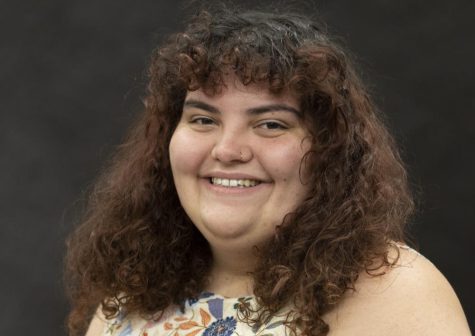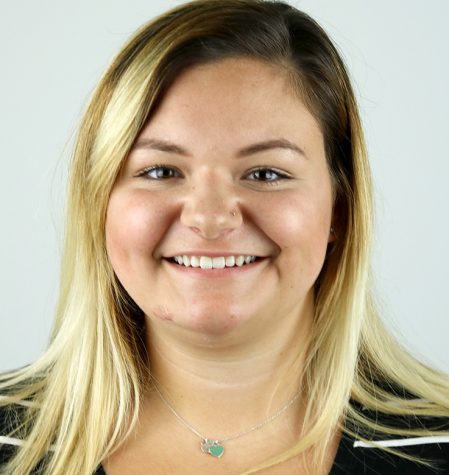Faculty react to Eastern’s COVID-19 plans
March 13, 2020
As the campus community works to sort through all new changes coming to Eastern because of the COVID-19 outbreak, Eastern educators shared their concerns and thoughts on the new alternative instructional methods that will be in place.
Instructors will need a laptop or desktop computer, high-speed internet connection, updated web browsers and a learning management system to begin teaching remotely, according to Eastern’s website.
Some professors said they were concerned about changing the delivery method of some courses and if students will be able to receive the same quality of education when changing to an online course.
Political science professor Ryan Burge said a lot of the classes were designed for traditional instruction when professors created their syllabi.
“We’re going to have to be rethinking in terms of how to give exams (and) how to deliver lecture material,” Burge said. “I’m worried about students who don’t have internet access at all, I’m worried about students who don’t have good internet access (and) I’m worried about students who don’t have internet access outside of their phones because a lot of materials are just not well-designed for a phone. It’s just a lot of uncertainty at one time.”
Jeanne Ludlow, professor of English and women, gender and sexuality studies, said she is working to familiarize herself with teaching online.
“First of all, I have never taught online, so this is going to be a real challenge,” Ludlow said. “But the things that I am most concerned about are, ‘Will my students have consistent access to what they need?’ So, being a novice myself, not ever having taught online before, I am getting all kinds of coaching from friends here and at other universities saying, ‘You can do this and you can make a video with Kaltura … and have students meet in groups’ and stuff like that, and it all sounds, like, actually kind of fun and interesting.”
However, she said she is worried she may not be able to adapt as quickly as her students will require her to.
“I am also concerned if my ability or inability to learn something new in that short time is going to hurt my students’ learning,” Ludlow said.
Ludlow said it will be important to be mindful of students’ capabilities during the transition.
“We have to pull together and do it together and have respect for everyone’s limitations and abilities and their individual limitations,” Ludlow said. “And that’s hard to do in this big of a community.”
One of Ludlow’s biggest fears was students losing the collaborative part of learning like in-class discussions and readings.
English instructor Colleen Abel said she thinks the biggest worry is for students who do not have consistent and reliable internet access.
Every student’s home situation is different, so she wants to construct her classes in a way that can easily work around that issue should it come up, she said.
“Not every student feels comfortable with online classes,” Abel said. “Not every student feels super tech savvy, and like I said the internet reliability thing can be an issue for some.”
She said there are benefits to going online, number one being the obvious health-related reason.
“If we don’t do this, we don’t know how much worse things might be,” Abel said.
She said her classes are more discussion based so she will be thinking of ways to work around that and still make sure her students can be heard, even online.
English professor Melissa Ames said she is not worried about transitioning to online because she has had the proper training.
What she is worried about, though, is students losing their motivation during the last leg of the semester, she said.
“I think obviously some students do better in face-to-face rather than online classes, so that’s something we’re aware of,” Ames said. “I think the university is trying really hard to make sure that students have access to all of their technology and whatnot.”
English professor Daiva Markelis said she has an advantage in teaching online.
“I am lucky that I am teaching two creative writing classes because that’s already set up in a way where students send out stories via email and get responses via email,” Markelis said. “I am also working on this online teaching course that I want to prepare for summer so I can teach a class online, so this will be good practice for me.”
Burge said students will not get the full experience with some of their classes as they move online.
“You can’t beat a good discussion in person,” Burge said. “We’re going to miss all of that stuff.”
Since she has taught online before, Abel said she should be able to easily transition. However, she said the hardest part will be the emotional aspect rather than the logistical because of the face-to-face interaction everyone is used to.
Some professors said they are also concerned that some students will not transition well to online instruction.
“If they don’t have (in-person instruction), then they have to be more self-disciplined, which most students obviously struggle with,” Burge said.
Philosophy department chair Jonelle DePetro said even though change is difficult in any scenario, this could be seen as a new adventure for the university and students.
Other concerns for the change are that some professors do not have experience with teaching courses online.
Being two-thirds of the way through the semester, another worry Burge said he had was for the faculty who have never had to teach courses online, those who have not had the proper training to do so and now have to learn it in the course of a week before classes resume March 30.
He said most of the political science department has taught online before, so the transition will not be too much of a hassle for them.
DePetro said she has seen a lot of support with technical changes so far.
“I will certainly need help; that will take some of the strain off the tech people. Also, our tech person for our college, Jeff Cranstoun, also sent an email and said ‘I’m here, we’re already creating some things …’ so look how quickly people are responding in such a positive way,” she said.
Some professors said they are worried about students not having the opportunity to walk the stage come May.
Burge said he is disheartened for all of the seniors who either will not be on campus for their last six weeks of college, or that it will not be the same if they do come back.
“My big worry is graduation,” Burge said. “I really will be bummed out if we can’t do graduation, especially for the seniors because they deserve it. They worked hard.”
However, the overall reaction from Eastern instructors was that they are glad the university took the precautions it did to keep the campus community safe.
“Obviously, I think the university made the right decision,” Burge said. “They really had no other choice at this point.”
JJ Bullock, Analicia Haynes and Elizabeth Wood contributed to this article.
Corryn Brock and Hannah Shillo can be reached at 581-2812 or at dennewsdesk@gmail.com.

















![[Thumbnail Edition] Senior Foward Macy McGlone, getsw the ball and gets the point during the first half of the game aginst Western Illinois University,, Eastern Illinois University Lost to Western Illinois University Thursday March 6 20205, 78-75 EIU lost making it the end of their season](https://www.dailyeasternnews.com/wp-content/uploads/2025/03/WBB_OVC_03_O-1-e1743361637111-1200x614.jpg)




















































